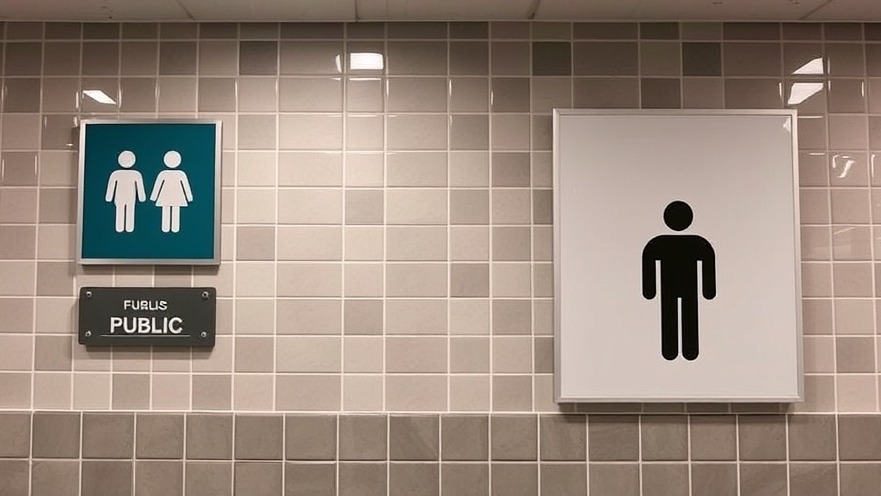
Texas Senate Passes Restrictive Bathroom Bill: A Closer Look
The Texas Senate State Affairs committee has once again stirred controversy by approving Senate Bill 7, a bill that restricts access to government and school restrooms based on an individual's birth gender. This legislation has sparked significant debate, highlighting the often volatile intersection of gender identity, privacy, and safety.
The Emotional Testimonies Behind Senate Bill 7
During the hearing on August 4, 2025, over 100 individuals provided passionate testimonies both in favor of and against the bill. Proponents argued that the legislation would protect women from potential harassment, a narrative echoed by Sen. Mayes Middleton, the bill's author. He claims the bill is pragmatic, rooted in "biological and biblical truths." Supporters emphasize the need for physical privacy in restrooms and changing facilities, asserting that the safety of women and girls should be the priority.
However, opponents of SB 7 expressed grave concerns about the implications for transgender individuals, arguing that enforcing such a law would lead to increased scrutiny and harm. Autumn Lauener, vice president of the Texas Transgender Nondiscrimination Scholars, articulated the fears many have: "I won't just lose access to a restroom. I'll lose access to the future in the state I worked so hard to build." This quote encapsulates the emotional weight carried by those standing against the bill.
The Legal Ramifications of SB 7
SB 7 proposes stringent penalties for violations, including fines of $5,000 for first-time offenders and $25,000 for repeat offenses. These measures aim to enforce compliance among government agencies and schools, yet they raise significant questions about the practicality of enforcement. The bill does not specify how agencies will monitor compliance, leading to concerns about regulatory overreach and the potential for discriminatory practices.
Comparative Context: Similar Legislation Across the U.S.
Texas is not alone in proposing legislation targeting bathroom access. Across the United States, many states have seen similar bills introduced, often met with fierce opposition. For instance, North Carolina's controversial House Bill 2 drew national attention and condemnation when it mandated that individuals use bathrooms corresponding to their sex assigned at birth. This led to significant backlash from businesses and the public alike, resulting in economic consequences for the state.
Public Sentiment and Future Implications
As public discourse continues to evolve, the societal implications of such legislation must be scrutinized. Critics emphasize that bills like SB 7 are not just attacks on transgender rights—they are indicative of broader societal anxieties regarding gender and identity. Furthermore, proponents, while asserting the necessity for safety, face the challenge of justifying why restrictive measures apply to such a minor section of the population.
What Lies Ahead for SB 7?
If passed, SB 7 would add to a growing list of restrictive measures impacting the lives of transgender individuals across Texas. Advocacy groups are already mobilizing to challenge the bill in courts if signed into law. The emotional testimonials heard during the hearing resonate deeply within the community, and the outcome of this legislation will likely have lasting consequences for public spaces and the rights of transgender individuals.
Community Responses and Next Steps
The conversation around SB 7 is poised to remain at the forefront of Texas politics. As advocates on both sides prepare for the next stages of this legislative battle, it remains crucial for citizens to stay informed. Engaging in public discourse and advocating for inclusivity can help shape the future of our shared spaces.
This ongoing debate serves as a reminder of the importance of understanding diverse perspectives. By fostering a compassionate dialogue, we can work towards solutions that respect the rights and dignity of all individuals, regardless of gender identity.
Stay updated with the latest in Texas news by following reputable sources to ensure you are well-informed about this pivotal issue.
 Add Element
Add Element  Add Row
Add Row 



Write A Comment